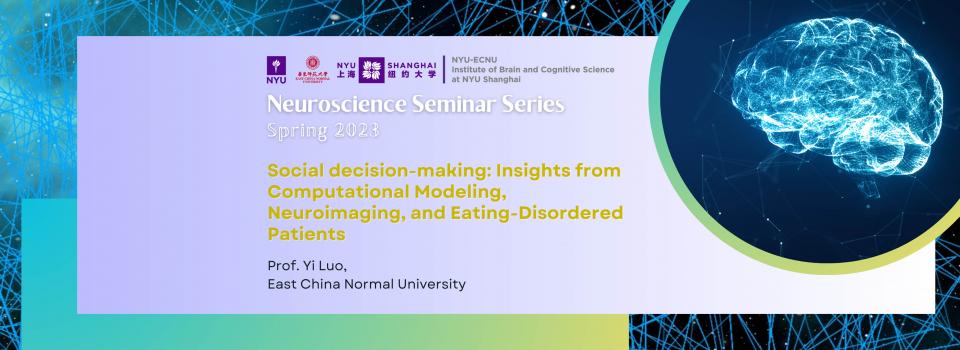
Host: Prof. Shuai Liu, East China Normal University
- RSVP to Join the Seminar Online or Onsite -
Biography
Motivated by the ubiquitous nature of social decision-making in human societies and its crucial role in both social functioning and mental health, Dr. Luo's primary academic interest is to understand the computational and neural mechanisms of social decision-making in humans. She combines game-theoretic and computational probes of mental processes with functional magnetic resonance imaging to deconstruct and understand the key processes involved in social decision-making. Currently, her research focuses on prosocial behaviors such as norm enforcement, trust, and cooperation. In addition to studying social behaviors and their underlying cognitive and neural mechanisms in the general population, she also examines the mechanisms that contribute to impaired social functioning in individuals with mental disorders.
Abstract
Choices made in social contexts are fundamental components of our daily lives. Adaptive social decision-making enables cooperation and enhances the quality of life, whereas maladaptive social decision-making can lead to interpersonal difficulties and is a key feature among a variety of mental disorders. In this talk, Dr. Luo will present her research on prosocial behavior based on evidence from normative and eating-disordered populations. Firstly, she will show how environmental factors, such as early childhood education and global crises, affect norm enforcement and altruistic decision-making. Secondly, she will discuss the key components of social interactions, namely valuation, cognitive control, and social cognition, based on her work, which involves quantitatively synthesizing four key brain networks that are continuously involved in human social decision-making. Lastly, she will present her recent data that demonstrate altered cognitive and neural mechanisms underlying aberrant social interactions in women with bulimia nervosa. Collectively, these findings suggest that the study of social decision-making is crucial to our comprehension of human behavior and can provide insights into improving mental health.


